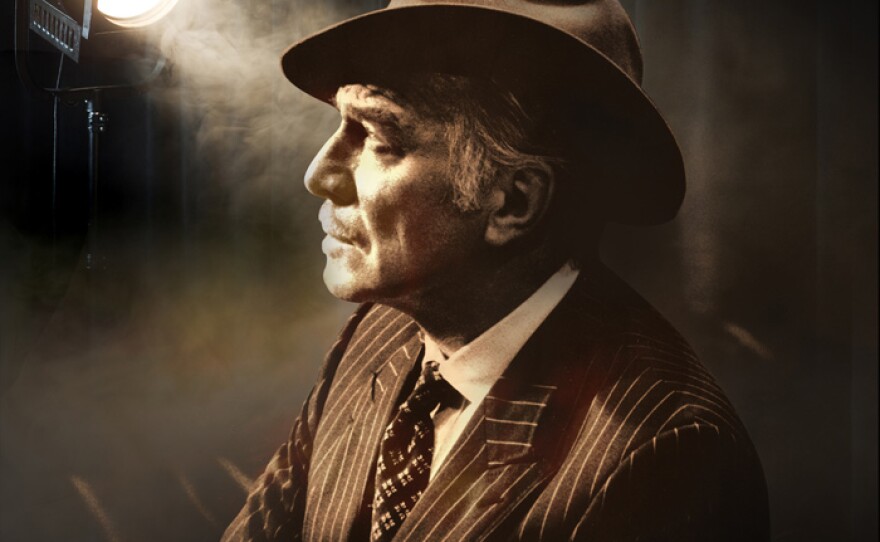After Christopher Plummer’s multiple awards wins for Beginners in 2010 (Oscar, Golden Globe, BAFTA and more), the distinguished star of stage and screen went on to deliver another highly affecting performance, when he re-created his Tony Award-winning role of legendary actor John Barrymore in the film adaptation of William Luce’s Broadway play of the same name. "Barrymore" will air on GREAT PERFORMANCES, Friday, January 31, 2014 on PBS.



Film Quote
Of Plummer’s performance, critic Rex Reed proclaimed, “It’s the role — and the performance — of a lifetime, and he plays every color, nuance, mood shift and variety of vocal power and body language in his enormous range. The artistry leaves you with your mouth wide open.”
Set in 1942, "Barrymore" shines a dramatic spotlight on the acclaimed—and notorious— John Barrymore, capturing the famously combative star in the final months of his life as he struggles to prepare for a backer’s audition to stage a revival of his 1920 Broadway triumph in "Richard III."
Once among the most acclaimed stage actors of his generation, as well as a central member of Broadway and Hollywood’s most famous acting dynasty, Barrymore is now in the twilight of his career, no longer a leading box office draw and wrestling with the ravages of his life of excess. With equal parts lacerating wit and piercing despair, the faded icon revisits the highs and lows of his theatrical triumphs and remarkable life.
The film had its world premiere at the 2011 Toronto International Film Festival. It was directed and adapted by writer-director Érik Canuel from the production for which Plummer won both a Tony™ Award and Drama Desk Award. John Plumpis, who toured with Plummer in the play after its Broadway run, re-creates his role of Frank, the prompter.
Christopher Plummer has enjoyed almost 60 years as one of the world’s most revered and beloved actors on screen and on stage.
Since Sidney Lumet introduced him to the screen in "Stage Struck" (1958), his range of notable films includes "The Man Who Would Be King," "Battle of Britain," "Waterloo," "Fall of the Roman Empire," "Star Trek VI," "Twelve Monkeys" and the 1965 Oscar-winning "The Sound of Music"; more recently, Oscar-nominated "The Insider" (as Mike Wallace, he won the National Film Critics Award), the Oscar-winning "A Beautiful Mind," "National Treasure," "Syriana," "Inside Man" and "Girl With a Dragon Tattoo."
His upcoming films include "Imagined" (opposite Al Pacino) and "Elsa and Fred" (opposite Shirley MacLaine). Plummer also appears in “Muhammad Ali’s Greatest Fight,” which is currently airing on HBO. His TV appearances, which number close to 100, have earned him two Emmys and seven Emmy nominations.
Raised in Montreal, Plummer began his professional career on stage and radio in both French and English and played Cymbeline under the great Russian director Theodore Komisarjevsky. After Eva Le Galliene gave him his New York debut (1954), he went on to star in many celebrated productions on Broadway and London’s West End, winning accolades on both sides of the Atlantic. He has won two Tony Awards and seven Tony nominations.
A former leading member of the Royal National Theatre under Sir Laurence Olivier and the Royal Shakespeare Company under Sir Peter Hall, where he won London’s Evening Standard Award for Best Actor in "Becket," Plummer also led Canada’s Stratford Festival in its formative years under Sir Tyrone Guthrie and Michael Langham. Plummer’s life is recounted in his autobiographical memoir, "In Spite of Myself" (Random House). Plummer’s one-man show "A Word or Two" will play the Ahmanson Theatre in Los Angeles from Jan. 19 to Feb. 9, 2014.
John Barrymore, the American stage and screen actor whose rise to super-stardom and subsequent decline is one of the legendary tragedies of Hollywood, was a member of the most famous generation of the most famous theatrical family in America, and he was also its most acclaimed star. The youngest and most gifted son of performers Maurice and Georgina Drew Barrymore, and brother of Ethel and Lionel, John Sidney Barrymore was born in Philadelphia in 1882. By 1909 he had achieved the status of matinee idol, owing to his good looks, distinguished profile, quick wit and personal charisma.

Throughout the 1920s, he played two roles that were widely acknowledged as the pinnacles of his stage career: Richard III (1920) and Hamlet (1923), the latter of which ran long enough to set a New York record and had a successful run in London. Following these triumphs, Barrymore devoted his time to his film career and appeared in one MGM production, "Rasputin and the Empress," with his siblings, Lionel and Ethel. After many years in Hollywood — starring in more than 60 films, including such classics as "Grand Hotel," "Dinner at Eight," "Twentieth Century," "Romeo and Juliet," "Maytime" and "Marie Antoinette" — John Barrymore returned to Broadway in 1939 for a brief run in one comedy with his fourth wife, Elaine Jacobs.
Theatre historians generally agree that had he possessed the necessary dedication and determination, John Barrymore would have been the greatest stage actor of his generation. After 1925, however, the hedonistic actor dissipated his talents. He died in 1942, at the age of 59, mourned as much for the loss of his life as for the loss of grace wit, and brilliance that had characterized his career at its height. Today, granddaughter Drew Barrymore carries on the family name.
Playwright William Luce previously wrote the Broadway and London hit, "The Belle of Amherst," starring Julie Harris as the poet Emily Dickinson, for which Harris won her fifth Tony Award for Best Actress. Luce has twice been nominated for Writers Guild Awards for the CBS-TV movies, “The Last Days of Patton,” starring George C. Scott, and “The Woman He Loved,” starring Jane Seymour, Olivia de Havilland and Julie Harris. He has also written autobiographical plays based on the lives of Lillian Hellman, Charlotte Bronte and Isak Dinesen.
GREAT PERFORMANCES is on Facebook. Past episodes of GREAT PERFORMANCES are available for online viewing.





